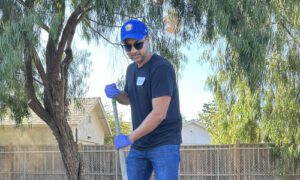You catch your reflection in a store window and freeze. That person staring back looks familiar, yet something feels completely off. Your appearance hasn’t changed much, but you’ve genuinely forgotten who you are beneath years of addiction.
The Weight of Shame and Labels
The shame hits immediately, that heavy blanket that’s been muffling everything underneath for so long. Every single day, it gets thicker. You’ve started believing the labels others place on you. Addict. Unreliable. Broken. These words stopped describing what you do and became who you are.
The stigma surrounding addiction created this particular prison you’re living in. You can’t escape what people think about you because their voices have become your own inner dialogue. Your entire world shrank until nothing existed beyond the next fix, the next drink, the next escape from yourself. Letting go of that “addict” identity feels terrifying because it’s been your entire world for years. Who are you without it? That question stops you cold every time you think about seeking help. The familiar pain of addiction somehow feels safer than the unknown territory ahead.
The Turning Point in Treatment
Then something shifts. Maybe you hit bottom. Maybe someone you love gives you an ultimatum. Maybe you just wake up one morning and realize you can’t do this anymore. You reach out to professional drug rehab programs that understand this identity erosion as one of addiction’s most destructive effects. Treatment addresses not just the physical dependency but the psychological rebuilding required when someone has forgotten how to be themselves without substances. This is where recovery actually begins, and it’s nothing like you imagined.
Early recovery forces you to look directly at yourself, perhaps for the first time in years. That reflection shows damage you’ve been avoiding. Regrets pile up in your mind. Relationships lie in ruins around you. Time you can’t get back has vanished. The self-critical thoughts start spiraling immediately. You’re worthless. You’ve ruined everything. You’ll never be better. These thoughts feel like facts, not feelings.
Learning Self-Compassion
Self-compassion becomes essential here, though it might be the hardest skill you’ll ever learn. It isn’t about excusing harmful behaviors or avoiding accountability. It means treating yourself with the same kindness you’d offer a friend who’s struggling. Research on shame and recovery shows that harsh self-judgment actually prevents healing. The inner critic keeps people trapped in cycles of relapse because they can’t forgive themselves enough to move forward. You learn that mindfulness means observing your thoughts without drowning in them. Common humanity teaches you that struggle is universal. You’re not uniquely broken. Self-kindness involves speaking to yourself with warmth rather than cruelty. This isn’t weakness. It’s the foundation for building something authentic.
Building Identity Through Daily Actions
You quickly discover you can’t think your way into a new identity. You have to act your way into it. So you start small. You make your bed each morning, proving something to yourself. You can follow through. You show up to meetings on days you’d rather hide, demonstrating reliability to yourself more than anyone else. Each kept promise becomes another brick in your foundation. Routine plays a massive role here because addiction thrived on chaos. Recovery requires structure. Regular sleep schedules teach your body when to rest. Consistent meals remind you that nourishment matters. Daily practices like morning coffee before work or evening walks after dinner create predictable rhythms. These teach your brain you’re someone who takes care of themselves.
Something unexpected happens when you start helping others. Service accelerates identity transformation faster than anything else. You volunteer at a food bank on Saturdays. You mentor someone new in your support group. You call your grandmother every Tuesday. Helping someone else shifts your self-perception from “person who takes” to “person who gives.” That shift matters more than you realized it would. You also rediscover parts of yourself that addiction buried. Maybe you start writing again. Perhaps you pick up painting or take photos on weekend hikes. You join a running group or try yoga classes. These activities let you excavate who you actually are.
The People Who Shape Your New Identity
Identity doesn’t exist in a vacuum, though. We become who we are through relationships with others. The people around you during recovery either reinforce your old identity or reflect back your potential. That’s why changing your social circle feels so difficult yet proves so necessary. Friends who still see you as you were. They expect certain behaviors, certain responses, certain choices. Their presence pulls you backward not because they’re malicious but because their version of you is fixed in the past.
Recovery communities function completely differently. People in these spaces see possibility rather than history. They’ve watched countless others transform, so they believe in your capacity to change. That belief matters enormously when your own belief wavers. Healthy relationships challenge you to show up authentically. They create space for vulnerability without exploitation, honesty without judgment, accountability without shame. These connections teach you how to be yourself around others, perhaps for the first time in your adult life.
Family relationships require particular attention during identity reconstruction. Your family members struggle to see you differently. They cling to protective patterns or old hurts. Patience helps. So does clear communication about who you’re becoming. Some relationships heal beautifully. Others need distance. Both outcomes become valid parts of building your new identity. Finding mentors or role models who’ve walked similar paths provides a blueprint for transformation. You see living proof that change is possible. Their existence demonstrates that you’re not attempting something impossible. You’re following a well-worn trail toward recovery.
Identity as an Evolving Process
Your identity in recovery isn’t fixed. It evolves continuously as you grow, heal, and discover new aspects of yourself. The person you are six months sober differs from who you’ll be at two or five years. That’s not failure. It’s the natural process of becoming. Recovery shapes a stronger, healthier identity by teaching you something powerful. You’re more than your worst moments. You’re bigger than your mistakes. You’re capable of change you once thought impossible. The process hurts. It demands courage you’re not sure you possess. But it offers something addiction never could. The chance to become genuinely yourself.
Professional support makes this transformation safer. At the Canadian Centre for Addictions, we understand that rebuilding identity requires structured support, therapeutic intervention, and community connection. If you’re ready to discover who you are beyond addiction, contact us at 1-855-499-9446 to learn about our treatment programs.




































